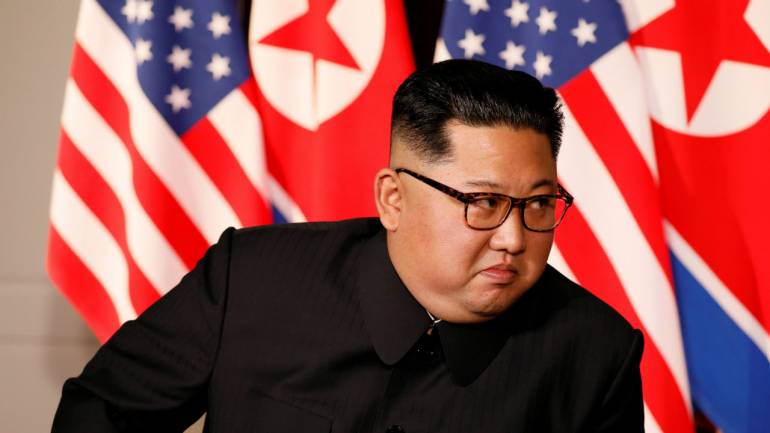Stephen Biegun said ahead of a meeting with South Korean officials that the allies are committed to ending seven decades of hostility and creating a "new, brighter future for all of the Korean people."
The Trump administration's special envoy for North Korea on Friday expressed optimism about the diplomatic push to resolve the nuclear crisis, a day after the North issued a surprisingly blunt statement saying it will never disarm unless the US removes what it calls a nuclear threat.
Stephen Biegun said ahead of a meeting with South Korean officials that the allies are committed to ending seven decades of hostility and creating a "new, brighter future for all of the Korean people."
He did not directly address the North Korean statement, which jarred with Seoul's rosier presentation of the North Korean position and could potentially rattle the fragile diplomacy between Washington, Seoul and Pyongyang to defuse a nuclear crisis that last year had many fearing war.
Biegun's comments echoed those of US Secretary of State Mike Pompeo, who told a Kansas radio station that Washington and Pyongyang were still working through the execution of North Korean leader Kim Jong Un's "commitment to denuclearise."
"We are hopeful that in the new year President Trump and Chairman Kim will get together not too long after the first of the year and make even further progress on taking this threat to the United States away from us," Pompeo said.
Upon his arrival in South Korean on Wednesday, Biegun said Washington was reviewing easing travel restrictions on North Korea to facilitate humanitarian shipments to help resolve the impasse in nuclear negotiations.
The North has yet to respond to Biegun's comments.
Thursday's statement was the North's latest display of displeasure over a deepening impasse in negotiations with the United States as they struggle over the sequencing of the denuclearisation that Washington wants and the removal of international sanctions desired by Pyongyang.
It also raises credibility problems for the liberal South Korean government, which has claimed that Kim is genuinely interested in negotiating away his nuclear weapons.
The comments may also be seen as proof of what outside skeptics have long said: that Kim will never voluntarily relinquish an arsenal he sees as a stronger guarantee of survival than whatever security assurances the United States might provide.
The statement suggests North Korea will eventually demand the United States withdraw or significantly reduce the 28,500 American troops stationed in South Korea, a major sticking point in any disarmament deal.
Kim and Trump met June 12 in Singapore where they agreed on a vague goal for the "complete denuclearisation" of the Korean Peninsula without describing when and how it would occur. The leaders are trying to arrange another meeting for early next year.
But North Korea for decades has been pushing a concept of denuclearisation that bears no resemblance to the American definition, with Pyongyang vowing to pursue nuclear development until the United States removes its troops and the nuclear umbrella defending South Korea and Japan.
In Thursday's statement, the North made clear it's sticking to its traditional stance on denuclearisation.
It accused Washington of twisting what had been agreed on in Singapore and driving post-summit talks into an impasse.
"The United States must now recognise the accurate meaning of the denuclearisation of the Korean Peninsula, and especially, must study geography," the statement said.
"When we talk about the Korean Peninsula, it includes the territory of our republic and also the entire region of (South Korea) where the United States has placed its invasive force, including nuclear weapons. When we talk about the denuclearisation of the Korean Peninsula, it means the removal of all sources of nuclear threat, not only from the South and North but also from areas neighbouring the Korean Peninsula," the statement said.
The United States removed its tactical nuclear weapons from South Korea in the 1990s.
Washington and Seoul have not responded to the North Korean statement.
North Korea's reiteration of its long-standing position on denuclearisation could prove to be a major setback for diplomacy, which was revived early this year following a series of provocative nuclear and missile tests that left Kim and Trump spending most of 2017 exchanging personal insults and war threats.
The United States may have difficulty negotiating further if the North ties the future of its nukes to the US military presence in the South, analysts say. (AP) RUP .














